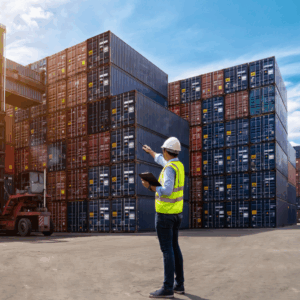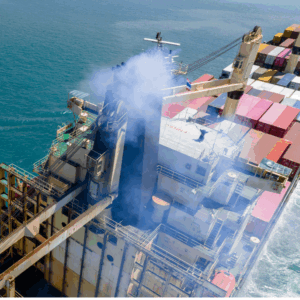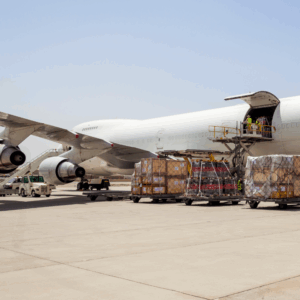
LTL Consolidation: Optimizing Freight and Shipping
LTL consolidation is more than just a cost-saving method; it is a strategic response to the growing need for flexibility in modern supply chains. Companies that don’t generate complete truckload volumes often face the dilemma of paying for
The benefits of freight consolidation extend far beyond cost. From a sustainability perspective, consolidating shipments reduces the number of partially filled trucks on the road, decreasing fuel consumption and lowering carbon emissions. This aligns with the growing demand for environmentally responsible supply chain practices. Operationally, consolidation increases predictability and stability in logistics planning, reducing instances of cargo delays caused by inefficient routing. ExFreight’s platform also integrates with LTL freight calculators, enabling shippers to simulate various load scenarios, compare LTL freight rates, and select the most suitable LTL shipping services for their specific needs. By combining digital tools with a vast network of LTL providers, ExFreight ensures that customers achieve maximum efficiency while maintaining control over costs, a critical factor in today’s volatile transportation and freight markets.
Air Forwarding: Speed and Global Reach
Air forwarding plays a crucial role in modern logistics, especially when time-sensitive shipments or international destinations are involved. Unlike carriers, an air freight forwarder does not own aircraft; instead, it coordinates the complex logistics of moving goods through multiple air carriers, warehouses, and customs authorities. ExFreight, as an Indirect Air Carrier, is licensed to provide this international freight shipping service, making global markets accessible even to small businesses. One of the most significant advantages of air forwarding lies in speed, as air transport is unmatched in delivering goods quickly over long distances. However, speed often comes at a higher cost, making it essential for businesses to understand air freight rates, air cargo rates, and air freight shipping costs to strike a balance between efficiency and budget considerations.
The calculation of air freight rates depends on several key elements, including chargeable weight, which is determined by comparing the actual weight of a shipment to its dimensional weight. Airlines apply size and weight limits for air freight to ensure aircraft safety and compliance, meaning shippers must understand the restrictions on air freight pallet sizes and cargo packaging. ExFreight helps customers navigate these complexities by offering instant air freight quotes that detail costs, requirements, and expected transit times. This eliminates the guesswork and uncertainty often associated with international shipping. By integrating freight forwarding pricing tools into its platform, ExFreight ensures that shippers can make informed decisions about when to use air freight for urgent cargo and when to rely on other methods, such as ocean freight or LTL consolidation, for less time-sensitive shipments.
Transport and Freight in the Digital Era
The logistics sector has historically been fragmented, relying on manual processes such as email, spreadsheets, and phone negotiations. However, digital transformation has reshaped the landscape, giving rise to digital freight forwarding platforms like ExFreight, which integrate LTL consolidation, air forwarding, and other modes of freight transportation into a single digital environment. These platforms provide instant access to freight forwarding pricing, shipment tracking, and documentation, offering a level of visibility and control previously unavailable to most shippers. For businesses, this means the ability to scale globally without the need to establish local offices or contract multiple freight forwarders in different regions.
ExFreight’s approach to transport and freight demonstrates how digitalization can empower both small and medium enterprises and large corporations. Through its online system, customers can obtain real-time LTL freight quotes, compare air freight rates, and manage customs documents required for international freight shipping services. Additionally, ExFreight acts as a neutral provider, ensuring that third-party logistics companies (3PLs) and freight forwarders can utilize its tools without competing for customers. The neutrality, combined with advanced digital tools, creates a reliable ecosystem where traditional bottlenecks are no longer a hindrance to freight and shipping, but are instead accelerated by real-time collaboration and automation.

Which documents are required to ship internationally?
At a minimum, international shipping requires a commercial invoice and a packing list. If the export declaration is not completed online during booking, a signed Shipper’s Letter of Instruction (SLI) is required. Depending on the country or commodity, additional documentation may be necessary. ExFreight provides country-specific guidance to ensure compliance and avoid delays.
What are temporary imports or temporary exports?
Temporary imports or exports occur when goods are shipped abroad for a limited purpose, such as a trade show or event, and then returned to the country of origin. In some countries, duties and taxes may be refunded after re-export, but this process can be costly and time-consuming. A Carnet document offers an alternative by allowing shipments to move across multiple countries without paying duties upfront. ExFreight can process Carnet shipments to facilitate smoother transactions.
How do I file a damage claim?
The shipper, consignee, or a third party with ownership of the goods can file claims. For trucking shipments, ExFreight assists in 
In the evolving landscape of transport and freight, businesses require partners that provide both expertise and technology. ExFreight delivers this by offering seamless LTL consolidation, efficient air forwarding, and advanced digital freight forwarding solutions. With instant LTL freight quotes, transparent air freight shipping costs, and integrated tools for freight forwarding pricing, ExFreight empowers companies to ship smarter, faster, and more sustainably. Whether the priority is reducing costs through freight consolidation, meeting urgent deadlines with an air freight forwarder, or gaining complete visibility into international freight shipping services, ExFreight stands out as a trusted logistics partner. The future of freight and shipping lies in transparency, efficiency, and digital integration, and ExFreight is at the forefront of this transformation.




Leave A Comment
You must be logged in to post a comment.